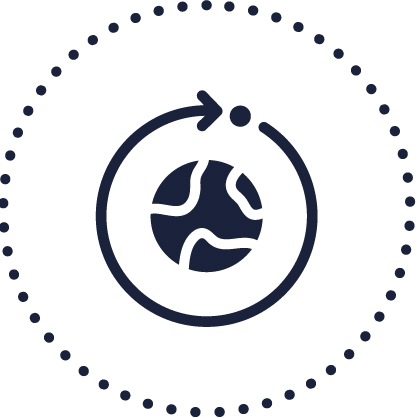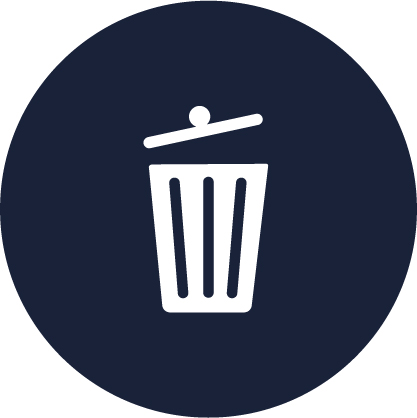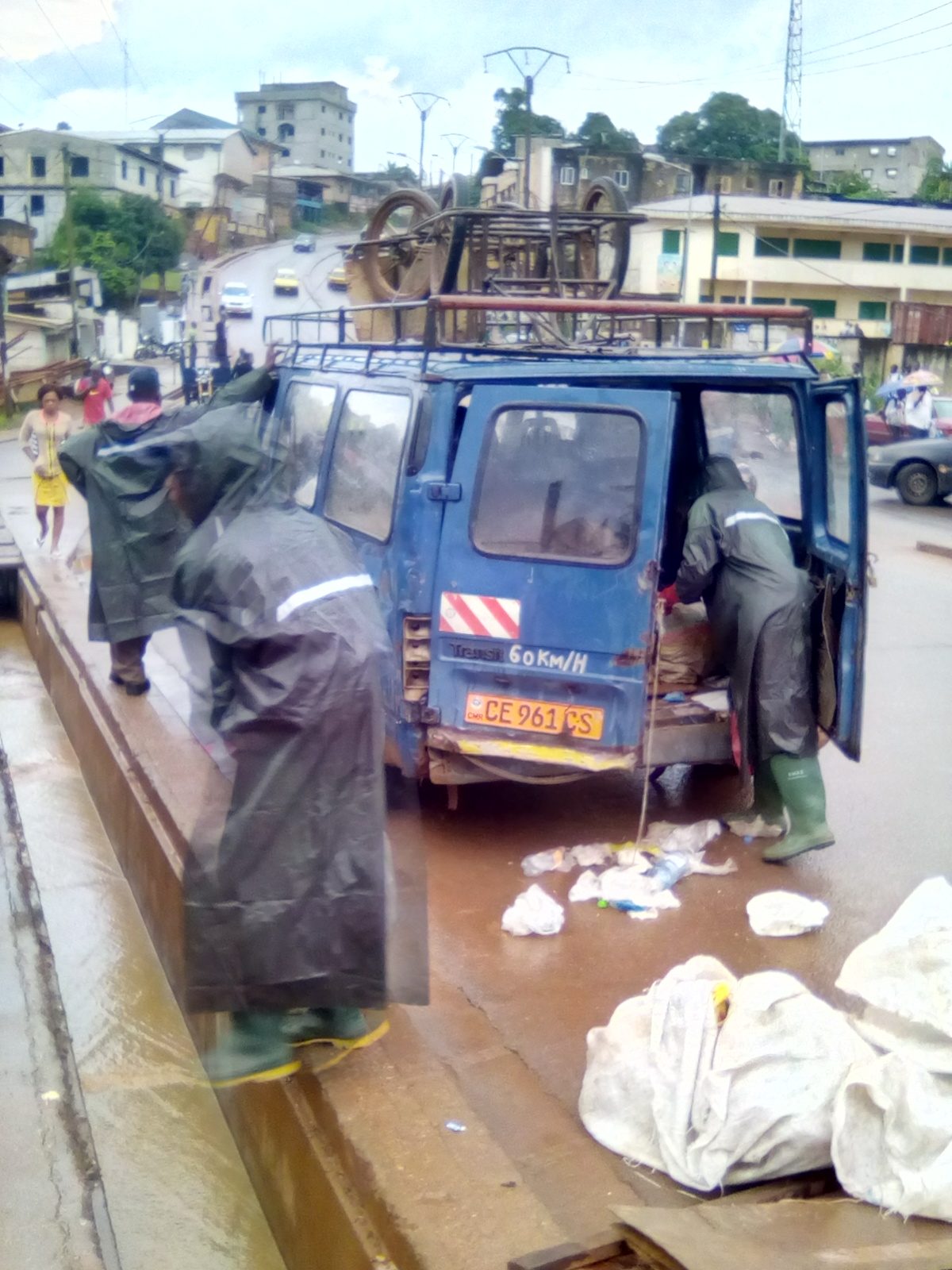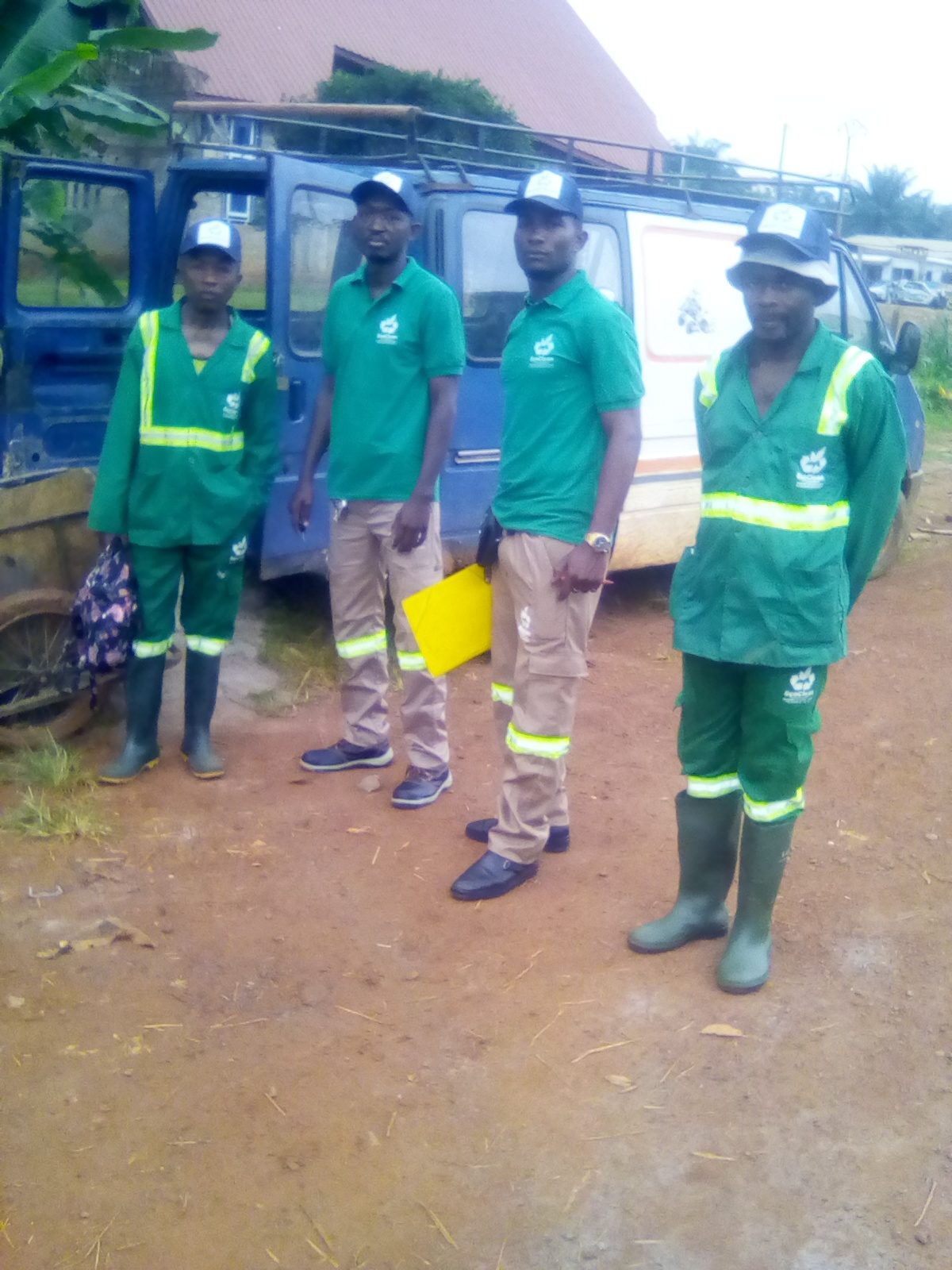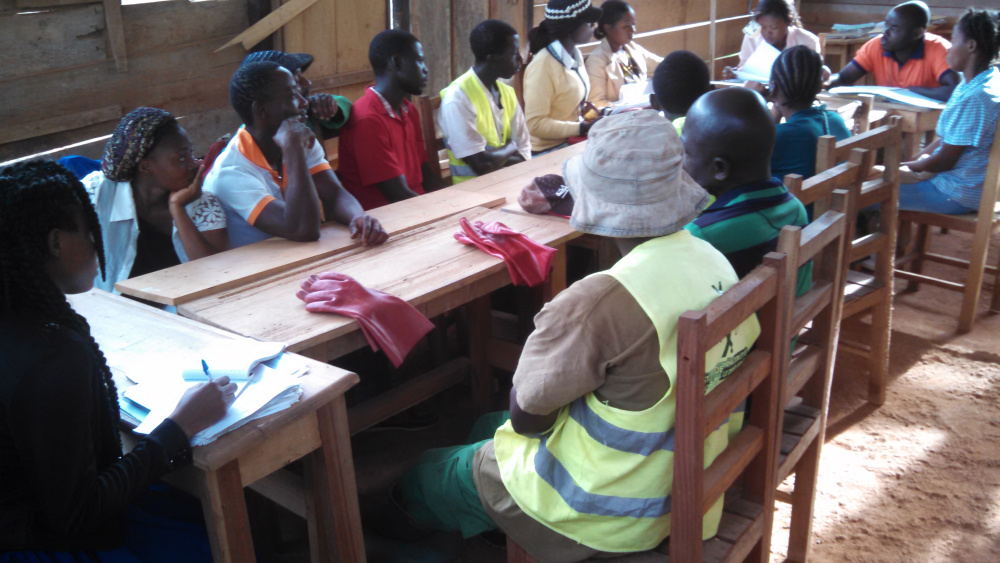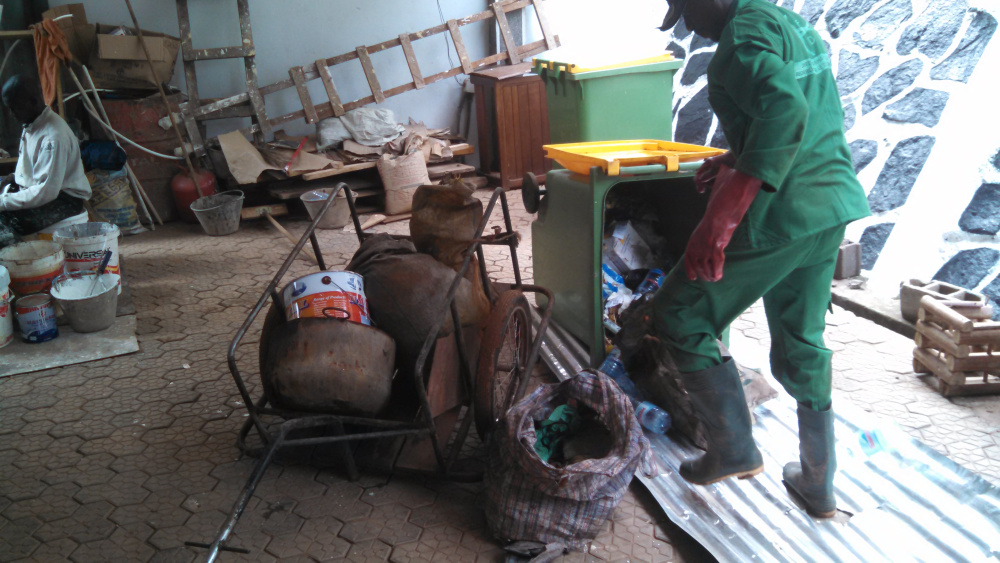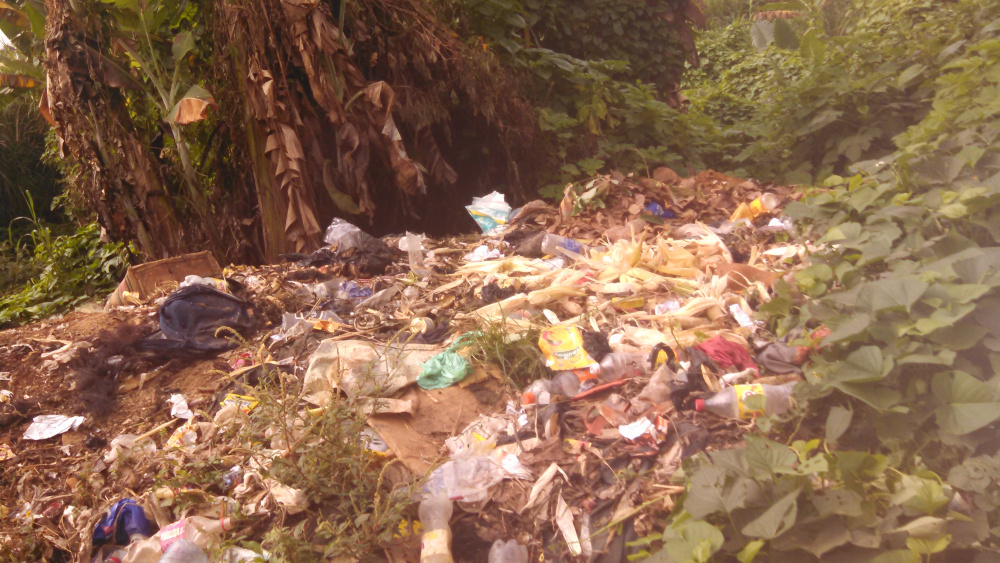Sustainable Planning of the City of Yaoundé
This initiative aims to pre-collect rubbish in order to implement a circular economy system within the city.
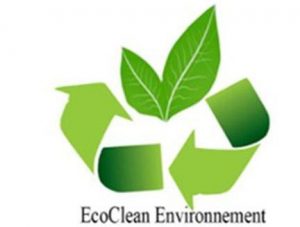
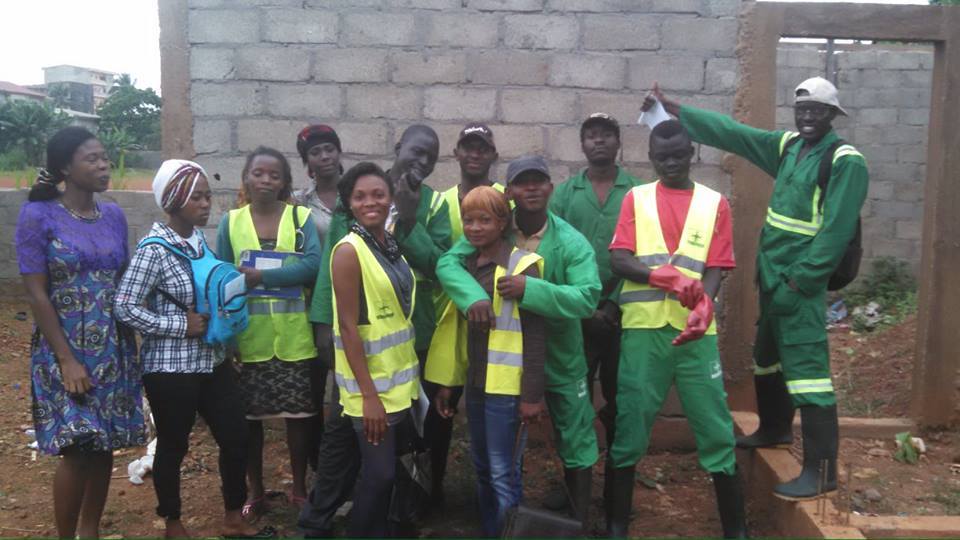
Overview of the project
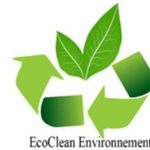
The EcoClean Environnement cooperative is one of the players in sanitation in Cameroon through the pre-collection and recovery of rubbish in the city of Yaoundé. It strengthens its capacities thanks to the support of programs such as “Action Plan for Access to Sustainable Energy and Climate (PAADC – Plan d’Action en Faveur d’un Accès à une Energie Durable et du Climate) or alternatively training programs from organisations such as ERA Cameroon.
The cooperative recovers more than 19.1 tons of garbage on average per month, which it sorts, recycles and deposits at the Urban Community’s voluntary collection points for final disposal. This waste represents only 2% of what the city can produce per month. A quantity is recovered by the company in charge of the collection and the rest ends up in ravines, gullies, waterways, or next to homes as a litter dump.
Through their action of recovering and recycling rubbish, the EcoClean Environnement cooperative has understood that waste represents an added value in the economy of a country like Cameroon, thanks to large-scale pre-collection and recovery of all sorts. Indeed, these actions are very important commitments. Firstly for the preservation of ecosystems, secondly for the reduction of greenhouse gas emissions, such as the methane produced by the uncontrolled landfills encountered in Cameroon, and finally for the economic action of the very profitable waste sector.
The economic profile resulting from waste exploitation undoubtedly deviates from the linear economy’s expectations to embrace that of the circular economy, which limits the waste of resources and takes into account the environmental impact by increasing the range of raw materials that can be mobilized. Through this aspect and vision, the EcoClean Environnement cooperative has been able to observe a circularization of its activity with beneficial effects on the quality and sustainability of the local, non-relocatable jobs created. These results are obtained thanks to a particular and less expensive sanitation method based on adaptive pre-collection. It was also possible to assess the environmental, sanitary and ecological changes obtained on their area of operation.
The objective is to show the environmental and economic advantages related to the proper management of sustainable waste in developing countries and more particularly in Cameroon.
Ongoing research
15/06/2016
The EcoClean Environnement project fostered:
- Creation of 27 jobs;
- Collection of more than 19.1 tons of waste from the ghettos each month for the voluntary collection points;
- Sanitation of more than four districts of Yaoundé;
- Raised awareness in more than 50,000 households; and
- Publication of three articles and distribution of two brochures on waste management.
- The results obtained from an eco-conceptual approach by EcoClean Environnement, a cooperative that valorizes biodegradable waste in two main ways: (1) firstly in the production of gas from household waste, and (2) secondly by the manufacture of charcoal from the peels of starchy vegetables (manioc, plantains, macabo, potatoes, yams, etc.). Integrating eco-design was a “strategic management process in the design of our products, notably biogas, biodegradable waste based charcoal, and agglomerated plastic blocks (plastic cinder blocks).” This has allowed us to take into account environmental impacts throughout the biodigesters manufacturing process, which are largely made from local recycled materials. In general, eco-design has encouraged innovation and made it possible to enhance competitiveness by saving on purchases (use of recycled materials), to gain a competitive advantage by meeting market expectations (we always have recycled material available), and to open up new markets.
- The results obtained from an eco-industrial approach, which is an operational component of sustainable development, enabled the establishment of an inter-firm organizational structure with synergies, exchanges of flows, mutualisation of needs, and reduction of channels between cooperatives operating in the waste sector and EcoClean. This approach makes it possible to limit the impact of EcoClean Environnement’s activities on the working environment.
- Results obtained from an eco-functionality approach by EcoClean Environnement has set up a system for the free installation of biodigesters in households. These households are thus obliged to pay for the monthly maintenance and upkeep of the biodigester at the risk of having it removed for a more participatory client. The company has also started to distribute free charcoal kilns to all interested households in order to increase their sales of garbage based charcoal. This action spurred customers to take an interest in using the charcoal and sold it to them in return. A functional economy system was thus created. This approach to functional economics is not based on the sale of these products but on their use. The focus here is more on the services related to the products than the products themselves. This applies to “durable” or “semi-durable” goods. This type of economy can be extended from functionality to exchange, self-sharing, and rental according to the wishes and needs of certain actors, a system that if integrated would benefit Cameroon.
- Results obtained from an approach based on re-employment, reutilisation, and recycling by EcoClean Environnement, a leading player in the reuse and extension of product life through assured maintenance and repair. Re-employment is the operation by which a product is given or sold by its original owner to a third party who, a priori, will give it a second life. Through the eco-industrial approach we hand over our products that are more usable at our level to cooperatives likely to use them. On a larger scale, the reuse, will allow Cameroon to decrease the importation of certain types of products and increase the exportation of products obtained from the recycled product.
The rubbish pre-collection and recovery activity generates its own financing.
organisation
EcoClean Environnement is a cooperative for the pre-collection and recovery of rubbish. It is an organization that aims on one hand to promote health and hygiene within Cameroonian society and on the other hand seeks to implement a circular economy with its actions.
To start with it involves a global cleaning up of unhealthy spaces and removal of locally produced waste in order to preserve the environment and fight against global warming and epidemics linked to health problems. Afterwards, it is a matter of increasing potential employment of young people, training the population in actions contributing to sustainable development, and finally promoting a circular economy.


